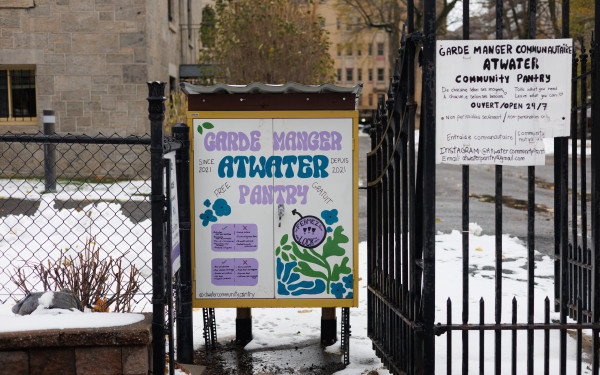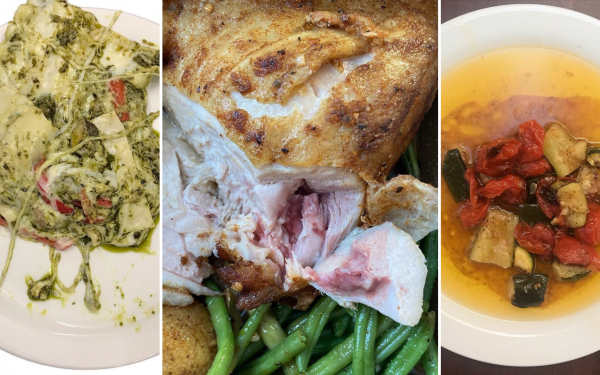Canada’s ‘ugly vegetable’ problem
Strict cosmetic retail standards for produce lead to food waste
Canada wastes $58 billion worth of food each year that could be used to feed those in need, a number that rose by 6.5 per cent since 2019, according to data released by Second Harvest in October 2024.
The report found that a large portion of this waste is avoidable and occurs during production, often due to farmers discarding edible "ugly vegetables" that fail to meet Canada's strict cosmetic retail standards.
“The food is still perfectly good to eat, but it might have a little blemish,” said Kiera Tofflemire, vice president of innovation at Second Harvest. “The retail specifications are so high around the cosmetics of produce that [some vegetables] don't actually meet the retail specs.”
For fruits and vegetables in Canada to be sold from producer to retailer, they must meet certain aesthetic standards of size and shape, and must also be free of physical blemishes. Carrots, for example, must have a minimum length of 4.5 inches and look similar to other carrots in the same bag.
According to Tofflemire, there are many reasons why farmers sometimes struggle to meet these standards. She said that more frequent extreme weather events such as heat waves and floods can damage crops and make them unsuitable for retail.
“Changing weather patterns aren’t just decimating crops,” Tofflemire said. “They’re creating cosmetic blemishes that, at the retail level, make [vegetables] unsellable.”
In response, some local initiatives have started up in an effort to redistribute avoidable food waste to those in need.
Rais Zaidi, also known as the “Food Pirate” of Montreal, is the founder of The Green Pirates, a food bank in the east end that redistributes surplus food from food banks and grocery stores.
According to Zaidi, the Green Pirates’ summertime donations often come from farms whose produce cannot be sold due to not being up to par with cosmetic standards.
“Whichever law regulates what your carrot should look like is a stupid law,” Zaidi said. “That's at the base of food waste because it's not like farmers don't want to get rid of their food.”
However, aesthetic standards for produce don’t stop at government regulations; private cosmetic standards are also set by businesses. Supermarkets use these standards to compete with other retailers in the hopes of appearing to offer fresher food than the competition next door.
“[Supermarket] quality standards are sometimes very harsh to local production,” said Patrick Cortbaoui, managing director of the Margaret A. Gilliam Institute for Global Food Security. “So what ends up happening is that [local producers] end up losing their food to the landfill.”
Cortbaoui said that local producers often get swept away by large industrial farms that can consistently supply big supermarkets with flawless produce. These industrial farms are often located outside Canada, with around 80 per cent of fruits and 60 per cent of vegetables being imported from other countries in 2023, according to the Canadian Agri-Food Policy Institute.
Cortbaoui added that there are no policies in Quebec aimed at intervening on stringent grocery store cosmetic standards, often leaving local farmers with no choice but to send their malformed vegetables to the compost bin.
“We have all the natural resources to produce enough food [locally]. But due to some inappropriate policies, we don't do that,” Cortbaoui said. “We'd rather rely on the mega-farms or the mega-companies worldwide to provide us with food.”
Zaidi had a similar experience when he operated a small farm in Montreal’s South Shore. He said that private cosmetic standards made it difficult to sell the produce he had grown to local retailers.
“The local grocery stores [weren’t] interested in what we had because it was just organic, regular, deformed, malformed vegetables,” Zaidi said.
Instead of letting the harvest go to waste, he left the produce out in front of his farm, inviting anyone to take what they needed.
The Green Pirates food bank operates in a similar fashion, redistributing excess food to anyone who needs it with no questions asked—just food for the taking.
“I don't want to know where you're from, how much money you make or how struggling you are,” Zaidi said. “I don't care. I want to get rid of the food here. I want it to be eaten. So everybody is welcome.”
This article originally appeared in Volume 45, Issue 7, published January 14, 2025.






_600_375_90_s_c1.jpg)
